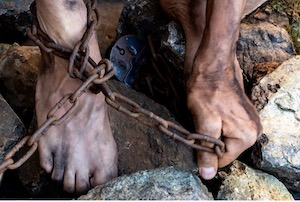By Adrienne Braumiller, Founder & Partner, Braumiller Law Group
Human rights violations run rampant within China’s Uyghur Autonomous Region (Xinjiang), targeting ethnic and religious minority groups such as Uyghurs, ethnic Kazakhs, and ethnic Kyrgyz. The PRC government in Xinjiang has unjustly imprisoned more than one million individuals from these minority groups since 2017. These abuses include state-sponsored forced labor, intrusive surveillance, forced population control, and child separation from families, among many other atrocities outlined in further detail in this business advisory released on July 13, 2021. Customs and Border Protection has seized more than 1,200 shipments of goods entering the U.S. with over $400 million of goods connected to forced labor practices.
These well-documented and widespread abuses, evidenced by the Department of Labor’s research on victim testimonies, media, and think tanks, are present within many industries. If you have supply chain links with China, including (but not limited to) Xinjiang, we have provided some relevant information that will guide you in your continual pursuit of ethical due diligence. Ultimately, it is vital that companies stay properly informed of the reputational, economic, and legal risks of involvement with forced labor practices.
What is Forced labor?
Forced Labor is when an individual is coerced into working through violence or intimidation. More subtle means of forced labor includes accumulated debt, control of identity papers, or threats of informing immigration authorities. Workers are often forced against their will to work for little to no pay while facing extreme abuse, indoctrination, and starvation.
Legal Risks
If a company is complicit with forced labor practices, they face extensive legal risks. These risks include violation of statutes criminalizing forced labor—this is when an organization knowingly benefits from doing business with a venture that engages with these unethical practices. A company can also face sanctions violations if their imported or exported goods are produced in whole, or even in part, with forced labor.
What Industries are Involved?
There is an ongoing list of industries that are involved with these practices:
- Agriculture (including raw cotton, hami melons, korla pears, tomato products, and garlic)
- Cell phones
- Cleaning supplies
- Construction
- Cotton, cotton yarn, cotton fabric, ginning, spinning mills, and cotton products
- Electronics assembly
- Extractives (including coal, copper, hydrocarbons, oil, uranium, and zinc)
- Fake hair and human hair wigs, hair accessories
- Food processing factories
- Footwear
- Gloves*
- Hospitality services
- Metallurgical grade silicon*
- Noodles
- Printing products
- Renewable energy (polysilicon, ingots, wafers, crystalline silicon solar cells and photovoltaic modules) *
- Stevia
- Sugar
- Textiles (including apparel, bedding, carpets, wool, and *viscose)
- Toys
* Newly added since last business advisory.
This list is non exhaustive; not all goods produced in these industries in Xinjiang involve forced labor. Raw and refined materials, commodities, intermediate goods, byproducts, and recycled materials may all have connections to human rights violations.
Updated business advisories, as well as the TVPRA List and ILAB’s Comply Chain due diligence tool for businesses, are practical guides for raising awareness and addressing the issue of forced labor. Companies with supply chain links to China should take special care when they conduct due diligence to protect the laborers that create their products. These severe and widespread abuses must be taken seriously. As Senior Trade Advisor for Braumiller Consulting Group, Mike Smiszek said in our last newsletter: “We can all agree that compliance policies and procedures are essential, but they are merely the tools we use to facilitate a collective culture of good behavior.”
More articles by this author: https://www.braumillerlaw.com/author/adriennebraumiller/

